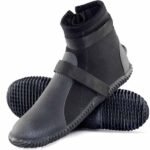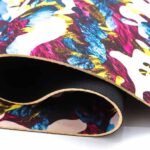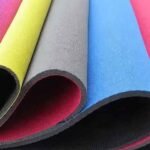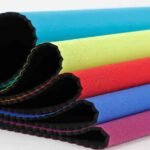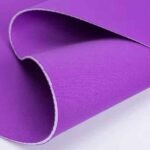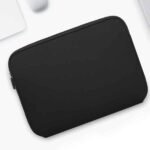Getting the perfect print on neoprene koozies requires understanding the right heat press temperature, time, and pressure settings. Incorrect settings can ruin your product, wasting time and money. By mastering the heat press process, you can ensure high-quality results every time.
The ideal temperature to heat press neoprene koozies is typically between 305°F to 320°F, depending on the type of transfer material used. Proper settings ensure the design adheres well without damaging the koozie.
Let’s explore the process, recommended settings, and tips for achieving flawless results.
How Long to Heat Press Neoprene Koozies?
Using the correct press duration is crucial for achieving vibrant and durable designs.
The typical heat press time for neoprene koozies is between 8 to 12 seconds, depending on the transfer type and machine used.
Shorter durations may cause incomplete adhesion, while longer times risk burning the material. Always refer to your transfer material’s instructions for accurate timing.
Why Timing Matters
- Under-Pressing
Designs may not adhere properly, leading to peeling or fading. - Over-Pressing
Excess heat can scorch the neoprene, leaving unsightly marks.
What Are the Settings for Neoprene Heat Press?
Every heat press has adjustable settings for temperature, time, and pressure, which must be calibrated for neoprene.
The ideal heat press settings for neoprene include a medium pressure, a temperature range of 305°F to 320°F, and a pressing time of 8 to 12 seconds.
Make sure to preheat your neoprene koozie for a few seconds before applying the design. This helps eliminate moisture and ensures even adhesion.
Commonly Used Settings Chart
| Setting | Recommendation |
|---|---|
| Temperature | 305°F to 320°F |
| Pressure | Medium |
| Time | 8-12 seconds |
What Temp to Heat Press Neoprene Koozies?
Temperature is a critical factor for heat pressing neoprene, as neoprene is sensitive to high heat.
For most designs, the ideal temperature to heat press neoprene koozies is 305°F. Certain transfer types may require slightly higher temperatures, up to 320°F.
Always test a small section or use a sample to avoid damaging the material.
Key Tips for Temperature
- Start Low
Begin with the lower range (305°F) and increase if necessary. - Monitor Closely
Use a heat-resistant thermometer to ensure accuracy. - Account for Material Type
Adjust for different neoprene blends or coatings.
Which Heat Press Machines Work Best for Neoprene Koozies?
Not all heat press machines are created equal, and some are better suited for neoprene materials.
Clamshell heat press machines are the most popular for neoprene koozies due to their even pressure and ease of use. Swing-away models are also effective for larger designs or thicker koozies.
Choose a machine that allows precise control over temperature, time, and pressure for consistent results.
Top Features to Look For
- Temperature Accuracy
Ensures no overheating or underheating. - Pressure Adjustment
Customizable pressure settings for delicate neoprene. - Compact Design
Ideal for small items like koozies.
How to Heat Press on Neoprene Koozie?
Heat pressing on neoprene koozies involves a few specific steps to achieve a professional finish.
To heat press a neoprene koozie, set your machine to the recommended temperature (305°F to 320°F), apply medium pressure, and press for 8-12 seconds. Preheat the koozie first to remove any moisture.
Step-by-Step Process
-
Prepare the Koozie
- Place the koozie flat on the heat press plate.
- Preheat for 3-5 seconds to eliminate wrinkles and moisture.
-
Position the Design
- Align your transfer design on the koozie.
- Secure it in place using heat-resistant tape if needed.
-
Set the Heat Press Machine
- Adjust the temperature to 305°F to 320°F.
- Apply medium pressure.
-
Press the Koozie
- Close the heat press and hold for 8-12 seconds.
- Open the press gently and remove the koozie.
-
Peel the Transfer
- Follow the transfer material’s instructions (hot or cold peel).
-
Inspect the Final Product
- Check for even adhesion and smooth edges.
Are There Common Mistakes to Avoid During Heat Pressing?
Even with the right settings, mistakes can happen during heat pressing. Avoiding these pitfalls ensures a smooth process.
Common mistakes include using the wrong temperature, not preheating the koozie, and applying uneven pressure. These errors can result in poor design adhesion or damaged materials.
Tips to Avoid Mistakes
- Double-Check Settings
Confirm temperature, pressure, and time match your transfer material’s guidelines. - Preheat the Koozie
Removes moisture and wrinkles for better results. - Use Teflon Sheets
Protects both the design and neoprene surface from direct heat. - Test First
Always test on a sample before full production.
Conclusion
Heat pressing neoprene koozies requires precision, but with the right settings and equipment, you can achieve professional-quality results. Remember, the key lies in balancing temperature, time, and pressure while using a reliable heat press machine.
At Szoneier, we specialize in high-quality neoprene products and customization services. Whether you need advice on heat pressing or sourcing top-grade neoprene koozies, we’re here to help. Contact us to learn more.



